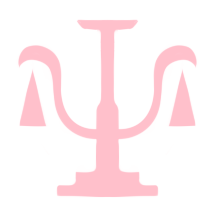
Utari Mélançon
UT …yes, I’ve done wrong…
UT …and I’ve begged for forgiveness, every step along the way…
UT …but I must see my Gods… I must…!
UT …I must see them, touch them, know them for reality…
UT …and shatter my dreams with their judgment…!

The Healer
Full Name
Utari Adilet Mélançon
The Doctor, Oculus Pius, Lady Fluorescence, Ingel
Ethnicity
Kyrgyz
Birthday
September 24th
Pronouns
…she is who I am…
Ultraviolet [#9F00FF]
GEISTOL CHEMIKO
OPTIC (Super Inspection)
🛐🛐
🛐🛐
🛐🛐🛐🛐
🛐🛐🛐🛐
🛐🛐🛐🛐
🛐🛐
Corvirus
The Malignant Specter. Unlike their benign relative - Ravenus - Corvirus are true portents of plague and doom. It’s no wonder that they are most commonly found in hospitals and areas of sickness. In the medieval ages, physicians who primarily recorded death tolls wore masks resembling their curved beaks.

Overview
A meek and melodramatic physician whose specialty is physical and spiritual aid. As archdeacon of the Tia Radia Cathedral, she leads her sermons with a devotion like no other.
However, she seems haunted by something, or someone - as if no matter what she purges, she can never escape her sins…
Likes
| Opium
Disikes
| Vulgarities
Relationships
 TN I-I see you are a committed and passionate individual!
TN H-Heh, so why am I quaking? What frightens me...?
TN I-I see you are a committed and passionate individual!
TN H-Heh, so why am I quaking? What frightens me...?
 CL <_Eh? You cant go around /accusing/ people like that_>
CL <_Besides, I hardly think Im an /abomination/ at all_>
CL <_Eh? You cant go around /accusing/ people like that_>
CL <_Besides, I hardly think Im an /abomination/ at all_>
 CV I guess we all have our ways of dealing with misfortune.
CV But isnt it better to embrace it than to run away from it?
CV I guess we all have our ways of dealing with misfortune.
CV But isnt it better to embrace it than to run away from it?
 MR I dunno. I wouldn't mind going out like that.
MR Falling into a pit of hellfire? That's raw as shit, innit?
MR I dunno. I wouldn't mind going out like that.
MR Falling into a pit of hellfire? That's raw as shit, innit?
 PB Y'know I find my Value invasive but on the other hand...
PB I'd hate to accidentally see someone naked.
PB Y'know I find my Value invasive but on the other hand...
PB I'd hate to accidentally see someone naked.
 MN ( WHAT? NO, I DON'T WANT TO GET RID OF THEM ]...
MN ( THEY HAVE TO HAUNT THE - YOU DON'T GET IT!! ]...
MN ( WHAT? NO, I DON'T WANT TO GET RID OF THEM ]...
MN ( THEY HAVE TO HAUNT THE - YOU DON'T GET IT!! ]...
 CE (sniff) ...I've always liked stained glass.
CE Dividing areas geometrically is very aesthetically pleasing.
CE (sniff) ...I've always liked stained glass.
CE Dividing areas geometrically is very aesthetically pleasing.
 VR People who believe in 'gods' and 'heavens',
VR Are just drowning in their misery. Shackled by it, even.
VR People who believe in 'gods' and 'heavens',
VR Are just drowning in their misery. Shackled by it, even.
 OS ♡ Ho ho! I've seen the way you look at that red guy!
OS ♡ What? You're WHAT? But my hunches are never wrong!
OS ♡ Ho ho! I've seen the way you look at that red guy!
OS ♡ What? You're WHAT? But my hunches are never wrong!
 CN oh, sister mélançon! i've heard of your work!
CN i hope one day i can baptise and heal people as well.
CN oh, sister mélançon! i've heard of your work!
CN i hope one day i can baptise and heal people as well.
 EW People find all kinds of different ways to worship.
EW It just... feels like a lot of work, I guess.
EW People find all kinds of different ways to worship.
EW It just... feels like a lot of work, I guess.
 CP I don't think I'd fit in well with the church.
CP Gods this, worship that. a bit too much for me.
CP I don't think I'd fit in well with the church.
CP Gods this, worship that. a bit too much for me.
 RZ You're better off committing wholly to science, madame!
RZ Who cares about faith? There's knowledge to be gained!
RZ You're better off committing wholly to science, madame!
RZ Who cares about faith? There's knowledge to be gained!
 MM () ( its refreshing seeing someone so accepting. ) ()
MM () ( of their inferiority that is. mi hi hi! ) ()
MM () ( its refreshing seeing someone so accepting. ) ()
MM () ( of their inferiority that is. mi hi hi! ) ()
 OV I already take enough preaching from the drunkard.
OV There isnt much you can say thatll surprise me.
OV I already take enough preaching from the drunkard.
OV There isnt much you can say thatll surprise me.
 IS i could have never gotten this far without you, ingel.
IS and i'll see you at the end of it, when it's all over.
IS i could have never gotten this far without you, ingel.
IS and i'll see you at the end of it, when it's all over.
 C5 If_i_could_lob_a_friendly_suggestion_your_way
C5 May_i_recommend_not_thinking_about_the_bad_things?
C5 If_i_could_lob_a_friendly_suggestion_your_way
C5 May_i_recommend_not_thinking_about_the_bad_things?
 DN Oh, You're One Of those Cult Leaders Over There
DN Luckily I Don't Need to Brainwash Anyone To Follow Me
DN Oh, You're One Of those Cult Leaders Over There
DN Luckily I Don't Need to Brainwash Anyone To Follow Me
 MS A prominent religious figure. {Heliotrope Plateau, UT}
MS Good potential. As long as she stays in line.
MS A prominent religious figure. {Heliotrope Plateau, UT}
MS Good potential. As long as she stays in line.
 CR It wouldn't have freaked you out if you didn't use your Value!
CR Not my fault I carry extras... geez Louise X/
CR It wouldn't have freaked you out if you didn't use your Value!
CR Not my fault I carry extras... geez Louise X/
 CA Here is an example of Geistol's aberrance from Galuctus.
CA There's devotion, yes. But to all the wrong things.
CA Here is an example of Geistol's aberrance from Galuctus.
CA There's devotion, yes. But to all the wrong things.
 GF Ah, Lady Fluorescence! I know you're thirsty ~
GF If the Lords' Blood doesn't sate you, I know what will ~
GF Ah, Lady Fluorescence! I know you're thirsty ~
GF If the Lords' Blood doesn't sate you, I know what will ~
 RS You poor, miserable thing. What has been done to you? ♡
RS It's as if your heart itself has been irradiated. ♡
RS You poor, miserable thing. What has been done to you? ♡
RS It's as if your heart itself has been irradiated. ♡
 BL I've, erm, gotten some [[INQUIRIES]] from your cathedral.
BL Suffice to say, there wouldn't be a proper segmént, for that.
BL I've, erm, gotten some [[INQUIRIES]] from your cathedral.
BL Suffice to say, there wouldn't be a proper segmént, for that.
 TM [[ You have a gift. Do not resist it. ]
TM [[ Use it for the good you were meant for. ]
TM [[ You have a gift. Do not resist it. ]
TM [[ Use it for the good you were meant for. ]
 TT [ Who are you, really? ]]
TT [ No one you should fear. ]]
TT [ Who are you, really? ]]
TT [ No one you should fear. ]]
 JO YOU WORSHIP THE THING THAT POISONS YOU.
JO DESTROY SOMETHING OTHER THAN YOURSELF!!!
JO YOU WORSHIP THE THING THAT POISONS YOU.
JO DESTROY SOMETHING OTHER THAN YOURSELF!!!
 LU Madame, you ~* MUST *~ escape that doom and gloom!
LU Wait, don't go! I'm n-not scary, I promise!!
LU Madame, you ~* MUST *~ escape that doom and gloom!
LU Wait, don't go! I'm n-not scary, I promise!!
Gallery
×
![]()
Trivia
- Level-headed and nonchalant at first glance, Utari is, in reality, so fragile that she can break down from the slightest provocation. When forced into a conversation, she has a habit of apologizing profusely, berating herself for her social ineptitude, or retreating entirely. Having a position of power in her later years seems to have stabilized her ever so slightly, since people look to her as a source of guidance.
- OPTIC’s most basic abilities allow one to see through mass, dissecting it layer by layer. Utari uses her Value most commonly as an anatomic x-ray, inspecting the bones and organs without removing them.
- Unlike its sister Value, SCOPE, OPTIC does not affect the range of sight. Utari wears contacts because, otherwise, she would have difficulty seeing a few feet in front of her.
- Utari insists that she would never use it for any… perverse purposes.
- Violet was her first Color Code, matching the name given to her by her family. She would end up discarding it in her late teens, transitioning to a similar yet much more unconventional Code.
- Even as a child, Utari was very shy. When trying and failing to make friends only made people treat her worse, she elected to blend into the scenery instead, hoping that the right people would find their way to her eventually. This would only further stunt her social and mental development into adulthood.
- As much as she decries demonic things, she shows a significant interest in the horrific and surreal. She argues that such immersion is helpful to her responsibilities - a healer should recognize and accustom themselves to the sight of the macabre, after all. A little morbid curiosity is healthy.
- She regularly reads novels with deep, psychologically disturbing elements. Strangely, she seems less frightened of them than the harmless things she encounters in real life.
- Due to an intense fear of temptation, Utari isolates herself from society whenever she can. Her public roles are an exception, of course, as she understands that she must overcome her paranoia eventually. But she always ends up going back to her reclusive ways. It’s as if Utari’s greatest fear is her capacity for deviancy.
- Ascendance to her current role in the cathedral wouldn’t have been possible if it weren’t for the assistance of Isaac Kuum-Külm - a mysterious, yet amiable benefactor who lifted Utari from her lowest point.
- He lacks a formal position, but he acts as her assistant and emotional anchor.
- Medicine is her expertise (even more than theology) due to her adolescent aspirations to become a nurse. Even without advanced tools, Utari demonstrates impressive diagnostic skills.
- Dissatisfied with the limits of conventional medical science, she will pursue additional treatments, deconstruct the body, and experiment however she can. Through scientific discoveries, both the world around us and the nature of our Gods can be understood.
- She has demonstrated exceptional calm and reliability as a caretaker, proving that she can overcome her typical challenges when she is truly devoted to a task. She can even be cold and ruthless when her patients don’t cooperate, exhibiting an almost sadistic thrill of control.
- Never is she more serious than when she preaches. It might take some time for her to compose herself in front of a crowd, but when she speaks, she embodies her position as cathedral leader. Her hatred of temptation and passion for righteousness overpowers all fear.
- Emotionally invested during confession, Utari seems to open up more due to the veiled barrier between the attendant and herself. Mass regulars note that this is where they connect with Utari the most, as she demonstrates true concern for people while they release their burdens in privacy.
- Her behavior takes on a strange fervor when the subject of confession becomes salacious. She seems almost disappointed when the sin is banal and outraged when it is completely unacceptable. But something in the middle, something lecherous and almost seductive in its temptation…
- During her routine inspection of medical materials, she likes to take an extra sniff of the rubbing alcohol. She claims the smell is nostalgic and comforting.
- She and Isaac were responsible for the restoration of the Tia Radia Cathedral. Visually, it is an impressive piece of French Gothic architecture, so its revival quickly attracted people to her masses.
- Tia Radia is an important figure in Synestheism - a woman with such strong Chroma that she could connect with that of others, healing and ‘purifying’ them. However, high energy comes with high chaos and instability, as she herself began to show signs of decay. The powers that be decreed her a danger to the public and had her executed.
- One of her lesser-known passions is toxicology. She’s already fascinated by the chemistry present in medical treatments, so studying adverse effects helps her diagnose patients and further understand the body. Her own poison tolerance is so strong that she regularly taste-tests her concoctions.
- Utari refuses to visit the cathedral’s belltower. A member of the clergy is tasked to maintain and man it.
- Little is known about Utari’s background prior to her taking over Tia Radia. Only Isaac will give cryptic details, such as how she had to discard everything and start anew at the cathedral, with him.

































